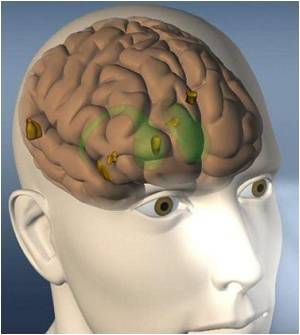
If they become immobile as they normally would when water is removed, the researchers move on to the next drug. But if somehow a drug helps the worms' brains overcome the dopamine deficiency and they transition to crawling, the lab has a potential therapeutic.
Pierce-Shimomura says that although humans have a vastly more complex nervous system than the worms, the two species share an "ancient and conserved" genetic structure to their dopaminergic systems. What works to overcome a dopamine deficiency in the worms may do something similar in humans, and it can be tested in worms with extraordinary speed.
Pierce-Shimomura has already begun testing potential drugs for Parkinson's. So far he's found one compound that shows promising effects in the worms. The particular compound has already been approved for use in humans for treatment of another condition.
Working with the university's Office of Technology Commercialization, he's filed a patent application for the worm model for testing of neurodegenerative diseases such as Alzheimer's and Parkinson's.
About half a million Americans suffer from Parkinson's disease, a degenerative disorder of the central nervous system. Early symptoms of the disease include shaking, rigidity, and slowness of movement. As it progresses, the physical symptoms can advance to the point of incapacity, and cognitive impairments, including early dementia, can arise as well.
Advertisement










